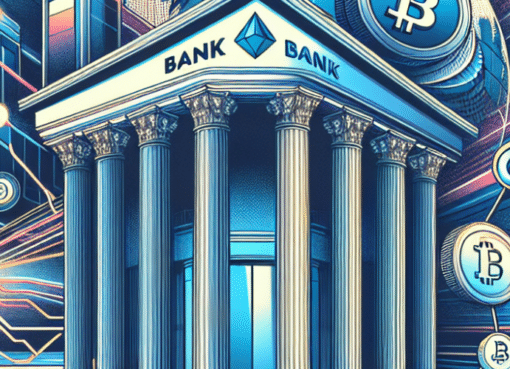In a significant move poised to transform the retail industry, several leading global retailers including Walmart and Amazon have announced the adoption of blockchain technology to revamp their supply chain management systems. This development underscores a growing trend where major corporations leverage cutting-edge technology to enhance transparency and efficiency.
As businesses worldwide continue grappling with supply chain disruptions exacerbated by the COVID-19 pandemic and geopolitical tensions, blockchain emerges as a strategic solution that promises greater visibility and reliability in logistics. The technology is renowned for its ability to maintain a tamper-proof, decentralized record of transactions, which is ideal for tracking products from manufacturing to delivery.
Revolutionizing Retail with Blockchain
Walmart has pioneered the integration of blockchain technology into its operations, setting a benchmark for other retailers. The company recently expanded its blockchain initiative to include most of its vegetable suppliers. By digitizing the supply chain, Walmart not only aims to reduce waste and improve product freshness but also to ensure food safety by rapidly tracing sources of contamination.
Amazon, not to be outdone, has initiated a blockchain-based system called Amazon Managed Blockchain. This platform supports thousands of transactions per second and maintains data not only about product journeys but also about the automation of contractual agreements between suppliers and distributors. This mechanization ensures compliance and expedites supply chain processes.
Advantages of Blockchain in Supply Chain Management
The adoption of blockchain in supply chain management offers several compelling advantages. Primarily, it enhances traceability, allowing companies and consumers to track the origin of goods and verify their authenticity. This is particularly vital in sectors like pharmaceuticals and luxury goods, where counterfeit products pose a significant problem.
Furthermore, blockchain facilitates better inventory management by providing real-time data, thereby reducing excess stock and improving order accuracy. This level of efficiency significantly mitigates risk and reduces costs associated with returned or undelivered goods.
Environmental and Ethical Implications
Besides operational benefits, blockchain also supports greater corporate responsibility. By enabling more precise tracking of products, companies can ensure compliance with environmental standards and labor laws throughout their supply chains. For instance, it can verify that products have not been produced using child labor or in violation of environmental regulations, which enhances brand integrity and consumer trust.
Industry Reactions and Future Outlook
The response from the retail sector has been overwhelmingly positive. Many industry analysts believe that blockchain’s potential to provide a transparent, immutable ledger of supply chain data could set new standards in the industry. According to a recent survey by Gartner, 20% of top global grocers are expected to use blockchain for food safety and traceability to create visibility to production, quality, and freshness by 2025.
As more retailers adopt this technology, the scalability of blockchain solutions will be critical. Challenges such as integration with existing IT systems, data privacy, and the creation of universal standards for blockchain applications remain. However, the ongoing advancements in blockchain technology are promising to address these issues.
Conclusion
The integration of blockchain technology by Walmart, Amazon, and other retail giants marks a new era in supply chain management. With enhanced transparency, efficiency, and reliability, blockchain is set to redefine industry standards, promising a more sustainable and consumer-friendly future. As this technology continues to evolve, its adoption across various sectors suggests a wide-reaching impact, potentially revolutionizing business operations on a global scale.
This evolution in the retail and supply chain sectors highlights an essential shift towards technology-driven solutions, setting a precedent that could extend well beyond the confines of traditional business practices. Retailers not yet on board are urged to consider blockchain to stay competitive in a rapidly changing market landscape.




